 Flashing back to that sad morning of September 12, 2003, NBC’s “Today Show” and the other network programs had to scramble their lineups, and in a hurry. John Ritter had died the night before, and then came word that Johnny Cash had passed away in the wee hours of the morning.
Flashing back to that sad morning of September 12, 2003, NBC’s “Today Show” and the other network programs had to scramble their lineups, and in a hurry. John Ritter had died the night before, and then came word that Johnny Cash had passed away in the wee hours of the morning.
Most major news operations have an “obit piece” nearby when a famous person dies. You can bet that NBC, USA Today, the New York Times and the other big media outlets have someone responsible for making sure they can react quickly when a celebrity passes away. If that person is elderly, or has been ailing, those pieces are prepared with some urgency. It might be needed at any moment. I’d venture a guess that when Anna Nicole Smith, Farrah Fawcett, Whitney Houston and Michael Jackson died, their obituary stories were ready to run. All had either been ill, or known to have personal problems that could adversely affect their chances for a long life. I’d say obit pieces for Billy Graham, Nelson Mandela and Muhammad Ali are within easy reach. All have been in poor health for years. There’s no reason for good journalists to be caught by surprise when that call comes.
Occasionally, you get a shocker: Princess Diana. James Gandolfini. The young star of “Glee,” Cory Monteith. Going back a few years, Marilyn Monroe, Elvis Presley and John Lennon. The causes of death are various, but all left us too soon, and in some cases, surprisingly sudden.
Johnny Cash’s death was somewhat expected. He had been in failing health for a number of years. He hadn’t toured since 1997 due to complications from diabetes and a neurodegenerative disease that robbed him of his strong voice and sure hands. His wife of 35 years, June Carter Cash had helped care for him, and according to family, watched over him like a mother hen. While Johnny was recording his late career “American” albums, it was June who made sure that her ailing husband wasn’t overdoing it. He needed something to do, but not more than he could physically handle.
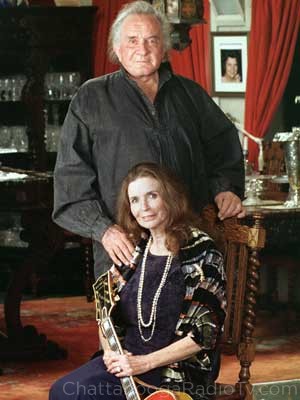 That’s why the real shocker involving the Cash family occurred on May 15, 2003. June was in the hospital for heart-valve replacement surgery. With Johnny’s health problems getting so much attention, June’s condition had received little or no press. There were complications, and June died following surgery. Press reports say Johnny was in a wheelchair at his wife’s funeral, “looking somber and composed.” It’s generally believed Johnny was fading quickly anyway, but June’s sudden death may have accelerated Johnny’s decline. He died four months later.
That’s why the real shocker involving the Cash family occurred on May 15, 2003. June was in the hospital for heart-valve replacement surgery. With Johnny’s health problems getting so much attention, June’s condition had received little or no press. There were complications, and June died following surgery. Press reports say Johnny was in a wheelchair at his wife’s funeral, “looking somber and composed.” It’s generally believed Johnny was fading quickly anyway, but June’s sudden death may have accelerated Johnny’s decline. He died four months later.
I always felt that Johnny had a connection to the Chattanooga area. He even recorded a song called “Chattanooga City Limit Sign.” He was famously arrested for drug possession in Walker County Georgia in November 1967, while reportedly in a drunken/drugged stupor, looking for Civil War relics, eventually knocking on strangers’ doors. Sheriff Ralph Jones had a long talk with his prisoner, who later credited the sheriff and his wife for “turning my life around.” Around the same time, he was said to have driven to Nickajack Cave in Marion County, Tennessee where he intended to commit suicide. The incident was captured in song by Gary Allan in “Nickajack Cave.”
In the late 1960s, he accompanied June, her sisters and Mother Maybelle for their shows at Lake Winnepesaukah. Although unbilled, audience members say he joined the Carter family onstage. In 1970, Cash performed at a benefit concert in Lafayette, GA to help build a new high school football facility, and as a “thank you” for Sheriff Jones. On April 10, 1971, he headlined 2 sold-out shows at Memorial Auditorium, joined by the Carter Family, Carl Perkins, and the Statler Brothers. He also performed some private shows in the Chattanooga area.
As much as I enjoyed Johnny Cash from his Sun Records days in the 1950s, to his Columbia hits of the early 1960s, his “Folsom Prison”/”Boy Named Sue” rebirth and TV show of the late 60s, and the Highwaymen supergroup of legends in the 1980s, the most lingering image will always be the song and video that capped his career: “Hurt,” written and recorded years earlier by Trent Reznor of Nine Inch Nails. The Cash version isn’t easy to watch, even to this day, but is it ever powerful!
Considered by some to be among the best music videos ever made, it was filmed in Cash’s Hendersonville home in October 2002. By this time, the Man In Black was unable to walk, and legally blind. You see the once-strapping man in all his trembling frailty, contrasted with photos and videos from his hell-raising younger days. When it was released in February 2003, the scene that choked me up was when June was looking at her sick husband, with a mixture of love and concern. When she died in May of that year, the video took on added poignancy. As is often the case in life, the caretaker did not survive the patient. In September, Johnny’s heart gave out too.
Johnny’s exit from this life was somewhat gradual, even prolonged by some standards. But the emotional jolt of this song, this video, and the sad series of events that followed seemed to happen quite rapidly. It’s hard to believe that ten years have passed since we saw the last of Johnny Cash. According to interviews shortly before his death, he was proud of his final work. I think he knew he left us something special to remember him by.

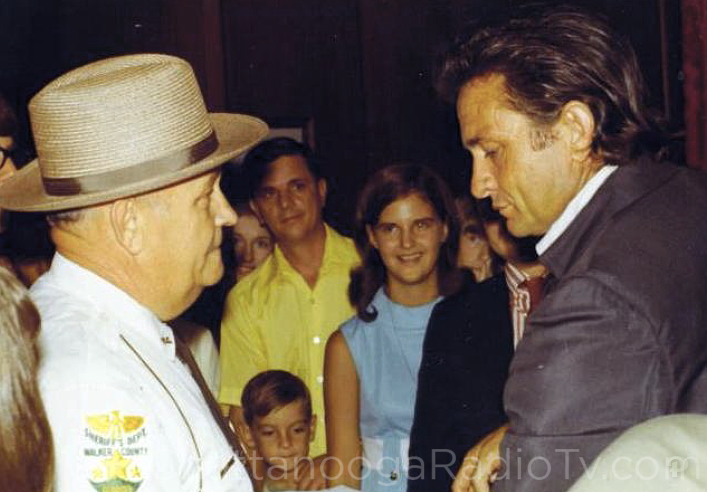
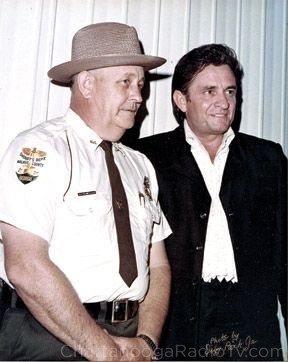
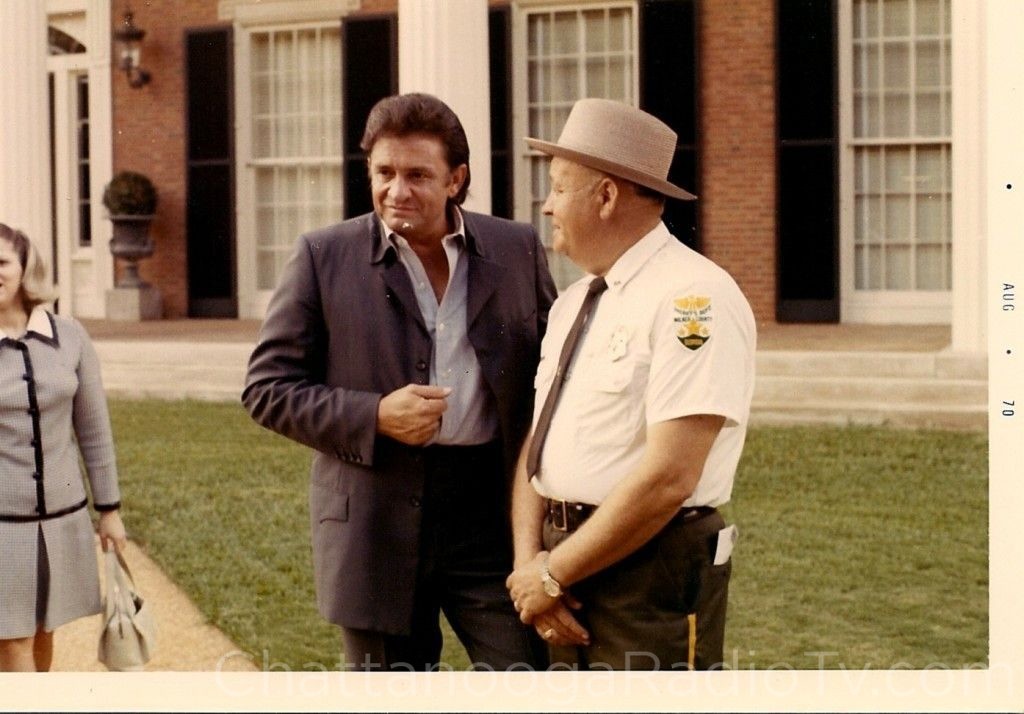
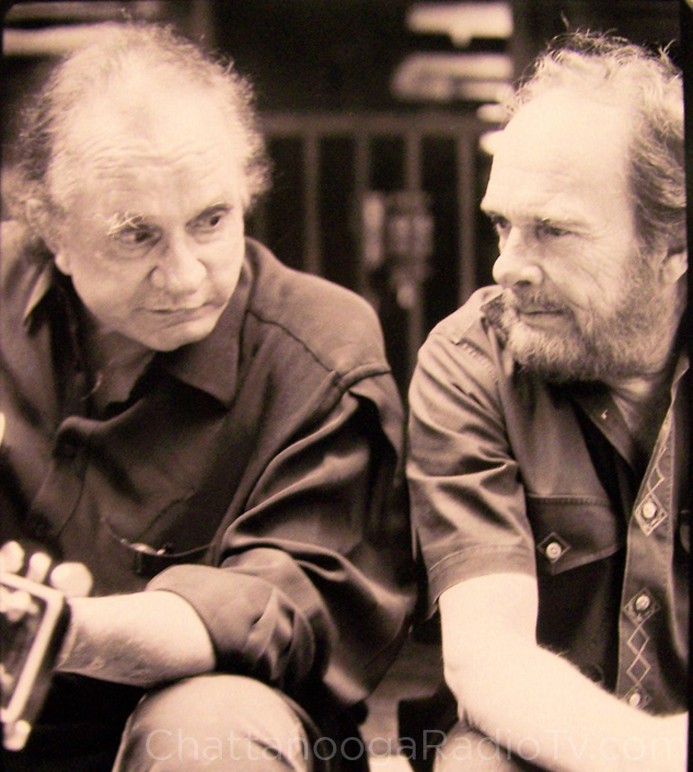


So sad, but such a great entertainer. May he rest in peace.
I have not watched that video since the day he died. I just can’t do it without getting very emotional, not just about Johnny, but about life itself.
Thank you David for sharing this story of the man in black. I read the the book of Johnny Cash’s life and it mentioned about him going into Nickajack cave and getting lost, but it didn’t say that he went in to commit suicide. It said that while wondering around for days in the darkness that he looked up and saw the moon and stars and that was his sign to find his way out. It also went on to say that he left an expensive guitar in that cave somewhere never to be found again. Johnny and June and even their son and each of their daughters by previous marriages were badly addicted to drugs but from all reports he and June came clean and had re dedicated their lives to The Lord before they died. God rest their souls.
Great story!